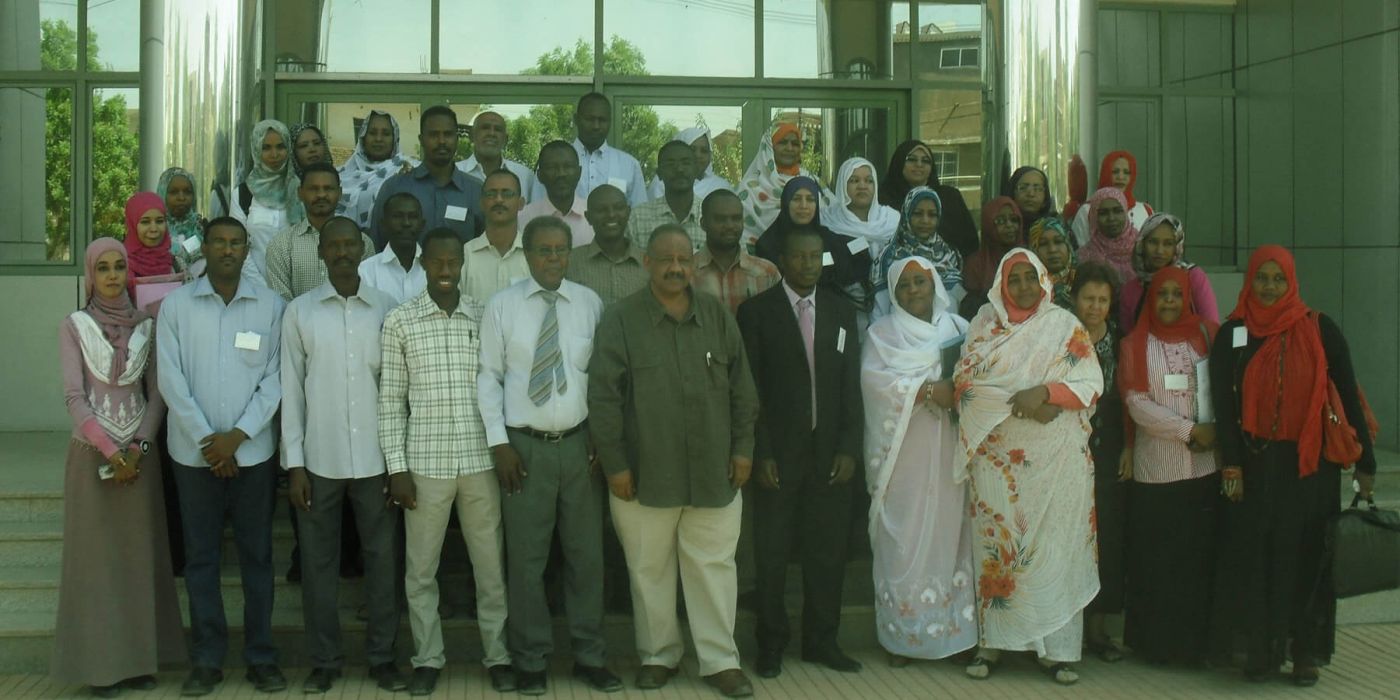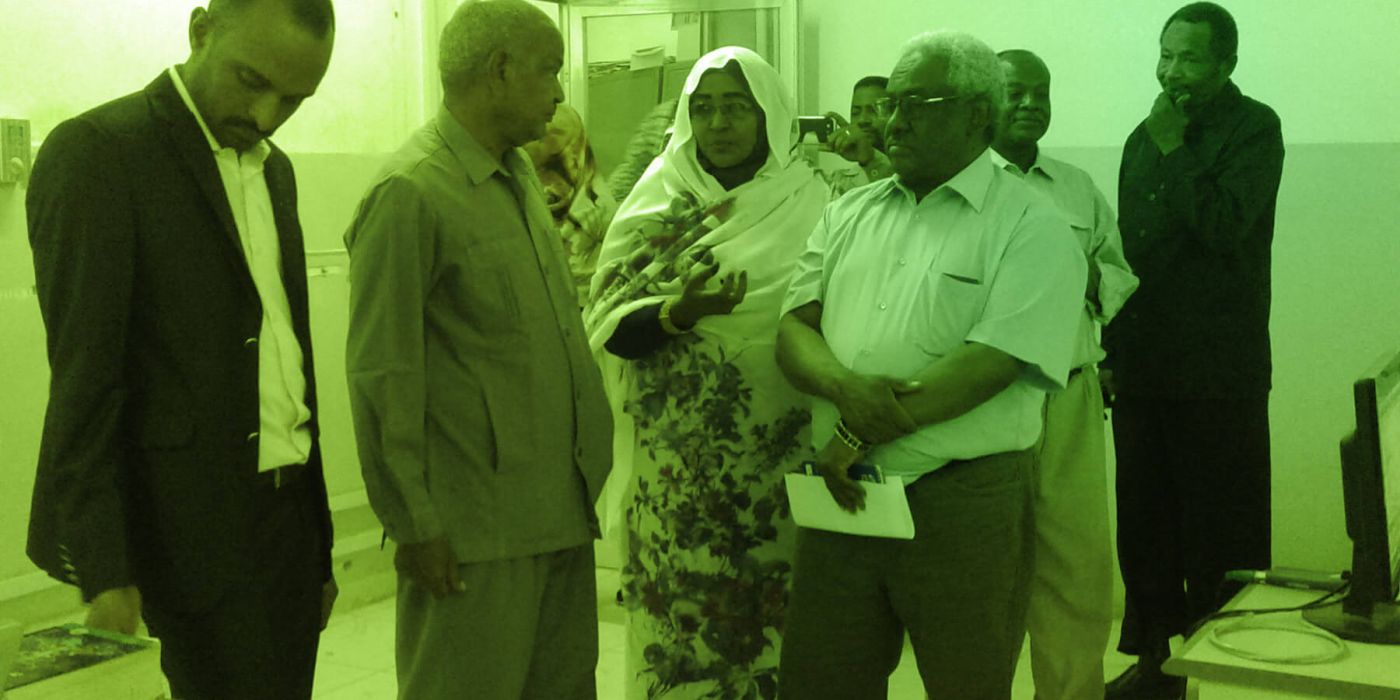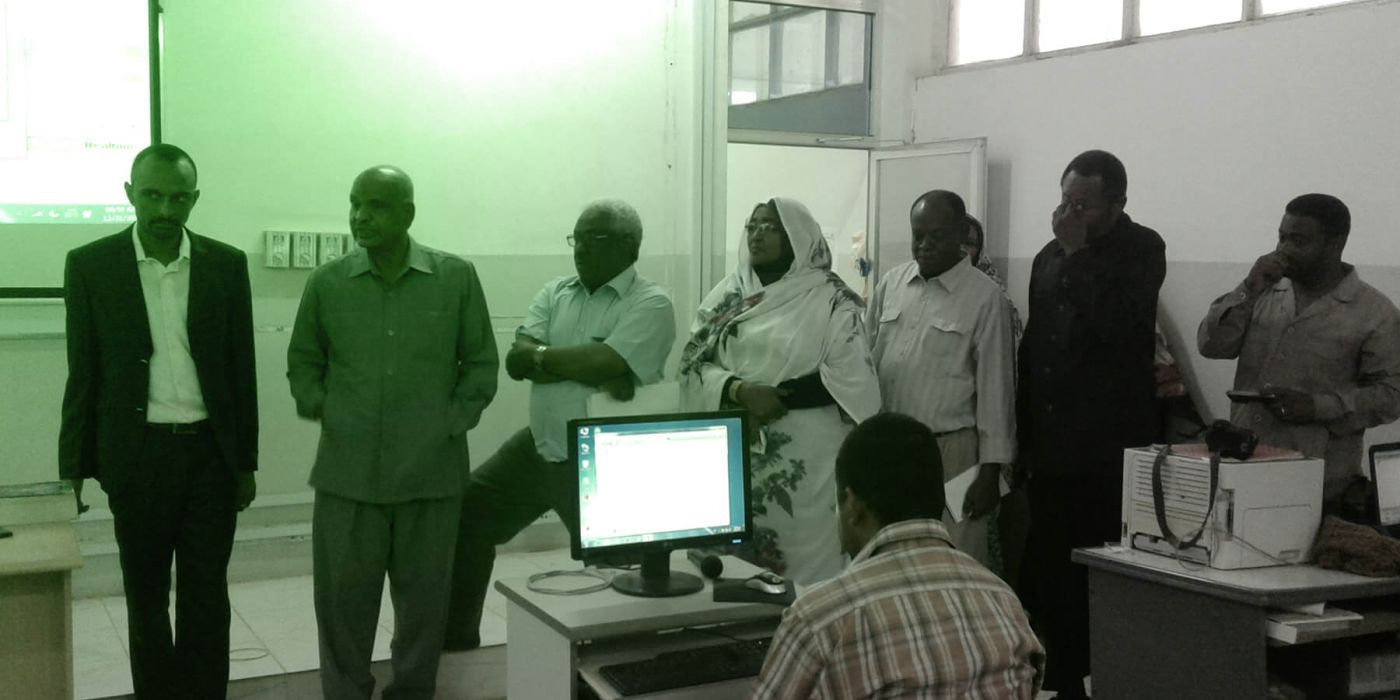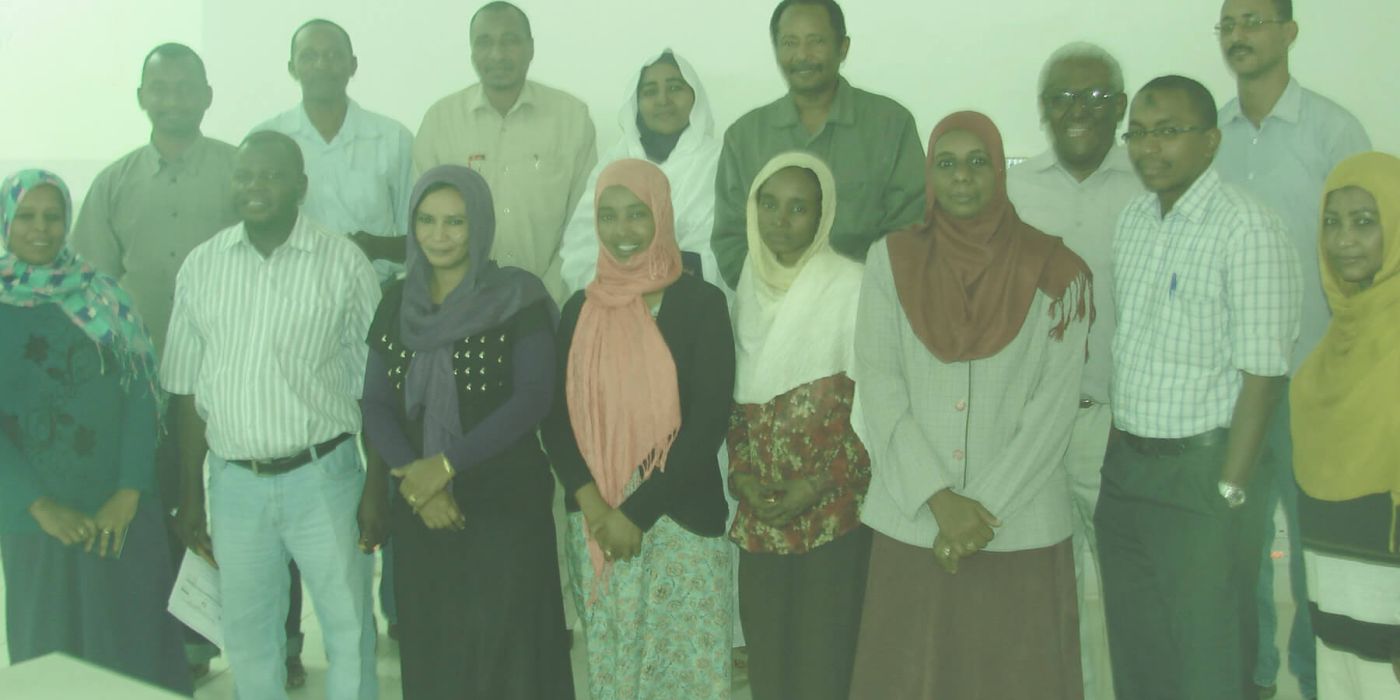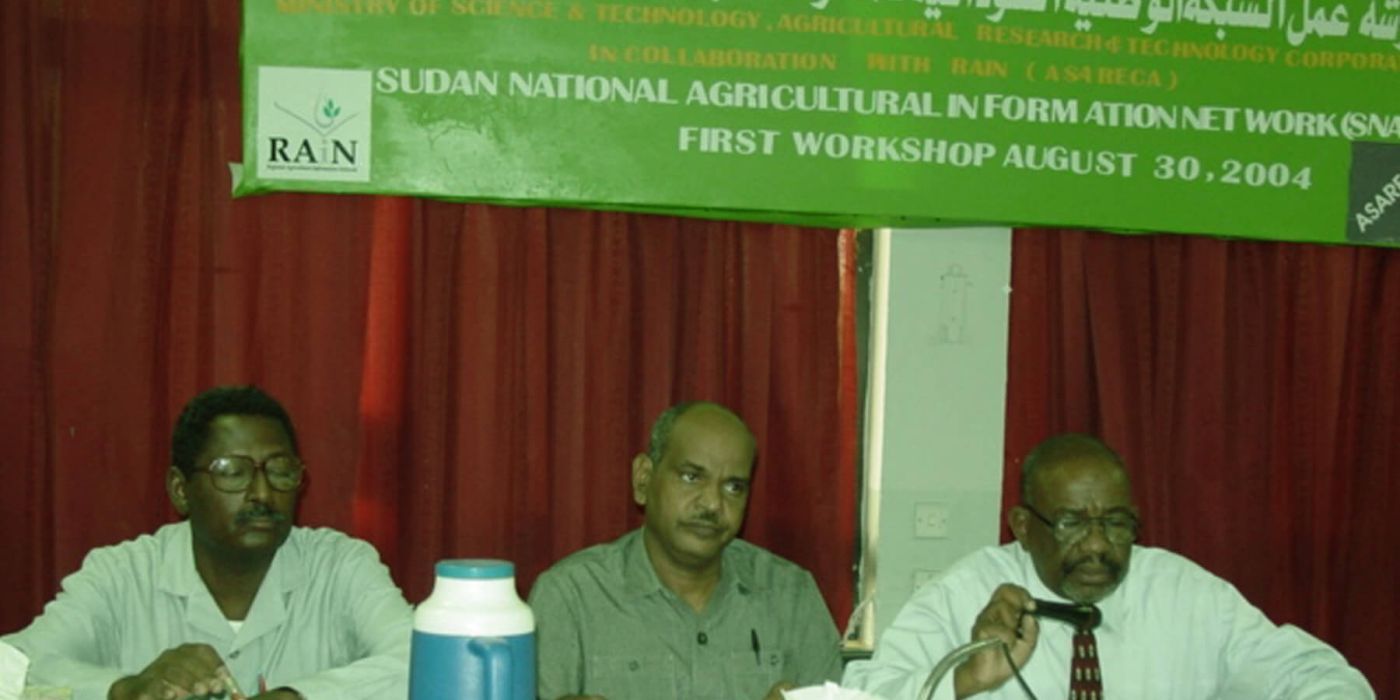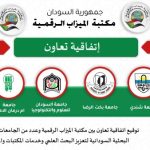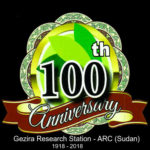الرؤية:
تسعى هيئة البحوث الزراعية إلى تأسيس نظام بحثي متكامل قادر على الأستفادة من الفرص المتاحة ومواجهة التحديات والمعوقات المتزايدة للتنمية الزراعية المستدامة والإستجابة للمتغيرات السياسية والإقتصادية والإجتماعية على المستوى الوطني والإقليمي والعالمي.
الرسالة:
القيام بالبحوث والدراسات العلمية والتطبيقية في المجالات الزراعية المختلفة وإعتماد ننائجها والمساهمة في نشر مخرجاتها على مختلف الفئات المستفيدة لتلبية إحتاجات خطط التنمية الزراعية المستدامة في السودان والمتمثلة في النهوض بالإنتاج الزراعي.
الأخبار
أكتوبر 14, 2024
أعلنت مكتبة الميزاب الرقمية https://www.mdl.edu.sd مؤخرًا عن إطلاق والورشة التدريبية الثالثة والتي تهدف إلى تعزيز مهارات أساتذة الجامعات والباحثين والطلاب وأخصائي المكتبات، سينطلق البرنامج التدريبي عبر منصة الميزاب الرقمية يوم الثلاثاء الموافق 15 أكتوبر 2024 في تمام الساعة الثامنة مساء بتوقيت السودان ، مستهدفة عددًا من الجامعات والمؤسسات الرئيسية. وتشارك في هذه الورشة الجامعات والمؤسسات التالية:
الجامعات المشاركة:
جامعة شندي، متمثلة في الدكتور حسن عوض الكريم علي أحمد، مدير الجامعة.
جامعة الجزيرة، متمثلة في الدكتور التجاني النور بشير عبدالجليل، مدير الجامعة بالإنابة.
جامعة السودان للعلوم والتكنولوجيا، متمثلة في البروفيسور عيسى بشير محمد الطيب، مدير الجامعة.
جامعة بخت الرضا، متمثلة في البروفيسور معتز بالله بكري أحمد سيد، مدير الجامعة.
جامعة أم درمان الأهلية، متمثلة في البروفيسور المعتصم أحمد الحاج، مدير الجامعة.
جامعة الرباط الوطني
جامعة سنار
المؤسسات البحثية المشاركة:
هيئة البحوث الزراعية، ود مدني، متمثلة في البروفيسور عبد المنعم طه أحمد الصويلح، المدير العام.
لمزيد من التفاصيل، يمكنكم متابعة البيان الرسمي على الفيسبوك من خلال هذا الرابط.
ستغطي الورشة مواضيع متنوعة تتعلق بمحو الأمية المعلوماتية ومهارات البحث واستخدام تقنيات الذكاء الاصطناعي في البحث العلمي وغيرها من البرنامج التدريبية الهامة، ويمكنكم الاطلاع على البرنامج التدريبي الكامل هنا.
تواصل المكتبة الرقمية الميزاب تقديم خدماتها لجمهور واسع من خلال توفير موارد علمية وتعليمية قيّمة عبر موقعها الإلكتروني الرئيسي. تابعوا آخر الأخبار والتحديثات على منصات التواصل الاجتماعي الخاصة بالمكتبة. [...]
ديسمبر 26, 2018الاحتفال بالذكري المئوية
لانشاء محطة بحوث الجزيرة
رئاسة هيئة البحوث الزراعية – ود مدني (السودان)
25-26 ديسمبر 2018م
يصادف هذا العام 2018 الذكري المئوية لقيام محطة بحوث الجزيرة والتي انشئت عام 1918 كمتطلب اساسي للتنمية الزراعية في السودان من خلال إجراء البحوث التطبيقية في مجال إنتاج القطن والمحاصيل الأخري.
في عام 1969 احتفلت هيئة البحوث الزراعية بمرور 50 عام علي إنشاء محطة بحوث الجزيرة (اليوبيل الذهبي). وتخليدا لهذه المناسبة تم تنظيم متندي علمي شارك فيه من الأجانب معظم اعضاء اللجنة الأستشارية للبحوث الزراعية وإثنين من المديرين السابقين للهيئة وأربعة من رؤساء الأقسام العلمية و10 من كبار الباحثين. كان موضوع المنتدي العلمي “نمو القطن في بيئة الجزيرة” (Cotton Growth in the Gezira Environment) حيث قدمت 26 ورقة علمية تناولت نتائج البحوث الزراعية في الخمسين عام الماضية في مجالات التربة والدورات الزراعية وتغذية النبات والعلاقات المائية وفلاحة المحاصيل والاقتصاد الزراعي والميكنة الزراعية والوراثة النباتية ووقاية المحاصيل.
في عام 1967 تم استحداث هيئة البحوث الزراعية كمؤسسة عامة شبه مستقلة , لتجمع تحت مظلتها كل وحدات البحوث والمراكز التخصصية في المجالات الأخرى كتصنيع الأغذية والغابات والمراعي لمواكبة التوسع الكبير في القطاع الزراعي وتلبية متطلبات التنمية الزراعية.
خلال الخمسة عقود الماضية حققت هيئة البحوث الزراعية العديد من الإنجازات التي رفدت بها القطاع الزراعي في السودان متمثلة في إستنباط الاصناف النباتية الجديدة والمعاملات الزراعية المسحنة وإدخال وأقلمة محاصيل نباتية جديدة ، فضلاً عن إيجاد حلول للمشاكل الطارئة التي تعترض العمليات الإنتاجية بهدف تعظيم العائد الإقتصادي لوحدة الموارد الطبيعية الزراعية (الأرض والمياه).
ظلت العلاقة بين محطة بحوث الجزيرة ومشروع الجزيرة وطيدة ومتواصلة عبر عقود طويلة وكانت التوصيات الصادرة من الهيئة هي المرجعية الأساسية لأساليب الإنتاج التي إنتهجها المشروع عير تاريخه الطويل ، بل تم تصدير هذه التوصيات إلى كل المشاريع الزراعية المروية بالبلاد التي تلت قيام مشروع الجزيرة.
يعتبر الإحتفال بالذكرى المئوية لمحطة بحوث الجزيرة فرصة نادرة للوقوف على الوضع الراهن لبرامج البحوث الزراعية وإبراز الإنجازات التي تحققت والتحديات الماثلة والروئ المستقبلية لتطوير برامج الهيئة لتعزيز دورها في تحقيق أهداف التنمية المستدامة. بالإضافة إلى أن هذه المناسبة ستكون نقطة إنطلاق لبداية الإعداد للخطة الخمسية القادمة لهيئة البحوث الزراعية (2020-2024) بمشاركة واسعة من شركاء التنمية من أكاديميين وزراعيين في القطاع العام والخاص ومنظمات المجتمع المدني.
التوثيق للإحتفال بالذكري المئوية لمحطة بحوث الجزيرة:
برامج الإحتفال – نرجو زيارة هذا الرابط
سيتم تحديث هذه الصفحة لاحقاً
[...]


